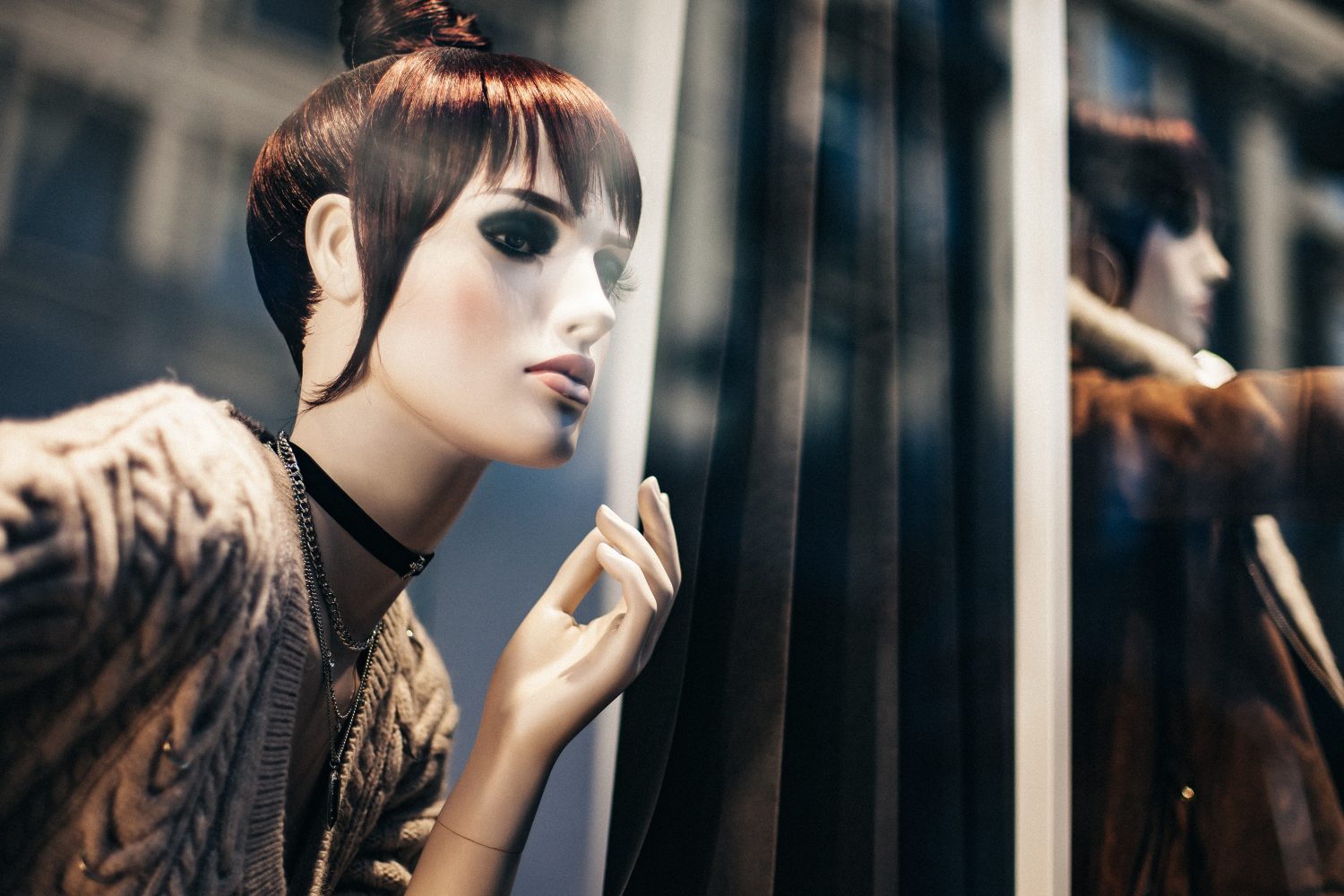
Is Good Body Image Possible in Our Culture?
We live in a world full of advertisements.
Just walk down the street, turn your head left (or right, it doesn’t matter) and you will see an advert targeting… YOU!
That sounds a bit like a conspiracy theory, but in all seriousness, adverts show people (or parts of people) living a happier version of life… don’t YOU want a happier version of life?!
They show scenes of hot saucy romance, pure freedom and adventure, the ultimate success in career, fun and party times with friends, and family security.
And where adverts really get you… is they pair these lifestyle images with “perfect” looking people, unconsciously priming you to want to look like the models! But the problem is these perfect looking models (in perfect clothes with perfect styling) are completely unattainable! No one looks like them! Not even the models look like them. They are digitally manipulated, enhanced and recreated to the point that the original image is hardly recognisable. Even Cindy Crawford once said about an advert of herself:
“I wish I looked like Cindy Crawford”
If you were to just see a few ads a year, you may not be largely swayed by these adverts. In fact, you would be able to remove yourself and see the ads for what they are: Unattainable and far-fetched. However, the problem is, if you’re female, you’re shown approximately 400-600 adverts per day!** And to make matters worse adverts show you models who look the SAME.
- Their hair has volume, shine and waves.
- Their skin is clear, they don’t have pores or pimples. They’re usually white or tanned.
- Their body is long, their legs are long, and their shoulder measurements square up with their hip measurements with an incy bincy teenie tiny waist in between.
Showing you the same-looking model is the oldest advertising strategy around.
It normalises a type of beauty. That is, if you’re bombarded with photos of people who all look the same, you unconsciously build an image of how you should look. This internalised image of how you should look is built purely on the models you see, which differs across cultures and decades. Take for example early 2000’s, the models had thin high-arched eye brows; thus, it was the norm to pluck your eyebrows into an inch of their life! Now the models have full bodied eyebrows, and we are all drawing and tattooing the brow back on!
Unfortunately, not only are we susceptible to believing we should look like the models in adverts, we are primed to want to look like the models, as they showcase a more desirable life.
Argh… what to do??
Strive for the ideal beauty. Change the way you look by investing in cosmetics, clothes, homeware décor and active wear. Ok, just to be clear, this is NOT my advice – this is what advertisers want you to do!
Buy, buy, buy!!!
So the golden question is: Is it possible to have good body image in this social milieu?
Well let’s face it, it’s an uphill battle to have good body image. But, yes (hand on heart) it is possible! And many people do have good body image.
For some people, good body image comes naturally. They have good self-esteem and have not been predisposed to poor body image by any of the risk factors (to learn about the risk factors, read blog post Poor Body Image and Why?).
For others, good body image may require work and conscious effort. It requires therapy with a good psychologist, effort changing your habits towards your body, awareness and education on the media, and strategies to increase your resilience and improve your relationship with your body.
When you suffer from poor body image it can be hard to imagine feeling confident in your body. If you’ve experienced poor body image for a long time or have body dysmorphic disorder (BDD), it can be even harder to imagine feeling happy with your appearance.
However, there is hope. Our society may make us vulnerable to poor body image, but with the right tools, you can live amongst the rubbish like a Queen.
How can Peaceful Mind Psychology help?
Our team of psychologists share a special interest in body image concerns and body dysmorphic disorder (BDD). We are passionate about helping individuals gain insight into their poor body image and work towards body image acceptance. We also are highly experienced in the delivery of eating disorder treatment. If you would like some professional assistance contact us at Peaceful Mind Psychology.
**Eating disorders: body image and advertising (2008). Retrieved from http://www.healthyplace.com/eating-disorders/main/eating-disorders-body-image-and-advertising/menu-id-58/
